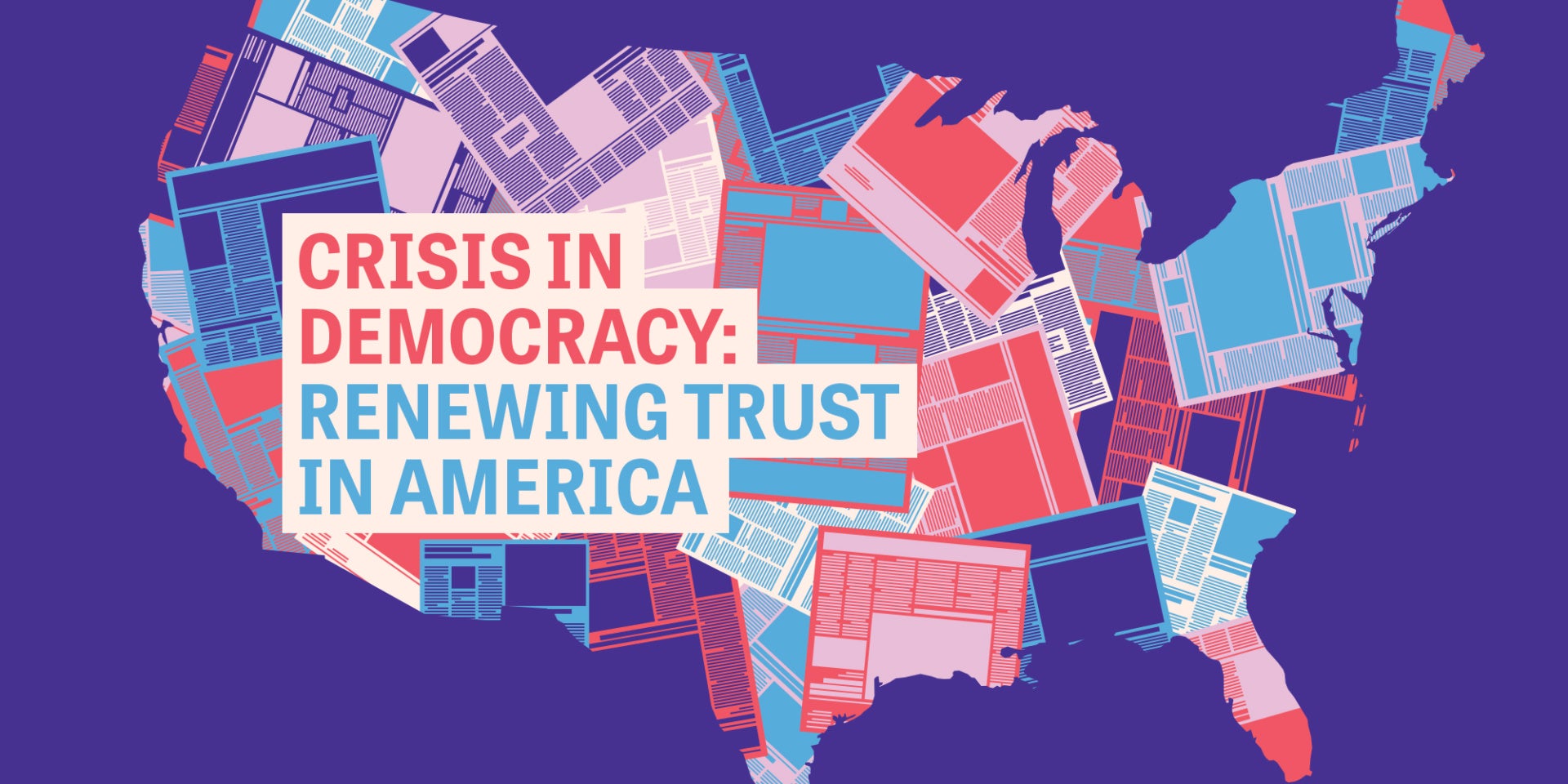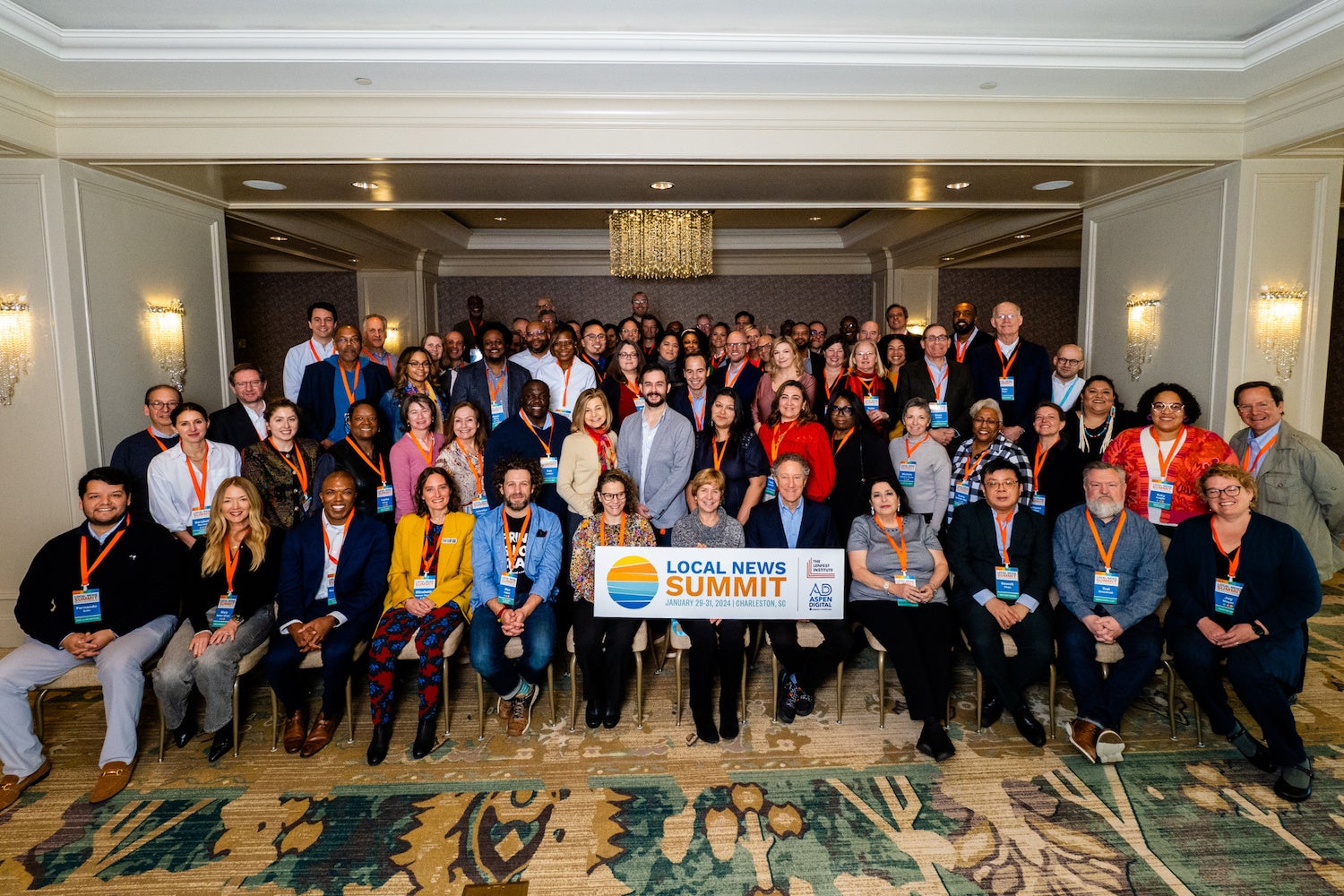This article originally appeared in USA Today.
By any measure, the media is in crisis. Trust in the news media is at historic lows. Bad actors have hijacked social media platforms to spread false information. Just last Thursday, Facebook and Twitter removed hundreds of accounts tied to misinformation campaigns originating in Russia, Iran and Venezuela. Meanwhile, news outlets including Gannett as well as BuzzFeed, Vice and HuffPo, have been forced by financial pressures to lay off thousands of journalists in the past few weeks.
The situation may seem hopeless. It isn’t — not yet. Media companies, digital giants, and all of us who consume the information they provide can take steps that will make a difference. A new report Tuesday from The Knight Commission on Trust, Media & Democracy makes specific recommendations designed to reverse the tide.
The steps are bold, and some will be controversial. The 27 members of the commission came from Google and Facebook, academia, non-profits and the journalism world (including myself and Gannett/USA TODAY senior director Mizell Stewart). They represented sometimes opposing political affiliations and clashing business models. The discussions were at times tense, with passionate conversations spilling outside of meetings and lasting long into the night at hotel bars. But the recommendations that resulted could have far-reaching impact.
We are proposing, for a start, that Big Tech step up to its responsibilities. Tech firms should commit to protecting your personal data in the same way that doctors and financial institutions protect your privacy. While this new approach needs to be more fully defined, it broadly means, in the words of the report: “The information fiduciary may not collect, manage or retain a user’s data in a way that will compromise the interests of the user for the fiduciary’s own benefit.”
In addition, tech firms should be proactive about stopping the spread of misinformation. False information spreads more quickly than true information online. Bad actors intentionally create provocative content that is intended to trick us into sharing it with our networks. Tech firms already have been working to stop the scourge of misinformation. But they should work with journalists and academics to minimize the sharing of malicious misinformation.
‘Radical transparency’ can help restore trust
The tech platforms should also disclose funders of all commercial advertising, not just political ads, to increase trust and to remove the decision-making about what actually constitutes a “political” ad; and further should be more transparent about their algorithms that determine what users see and don’t see. We recommend a “glass box approach” that explains, in plain English, “what is personalized and to what extent, what causes certain content to be recommended, and what a user can do to control this customization.”
More transparency — what we call “radical transparency” — is also part of how the news media can restore lost trust. For instance, are you able to distinguish news from commentary from partisan opinion? Probably not, and it isn’t your fault. News organizations all have different ways of labeling content. We urge a “summit meeting” of news leaders to establish best practices that are adopted by all, and are transparent to news consumers. All elements of the media ecosystem should adopt common standards for corrections, anonymous sources, advertising, and labeling of news and opinion.
Philanthropists should support journalism
Newsrooms should work to make their staffs reflect the diversity of their communities, and explore new ways to pay for journalism, especially local journalism. Numerous local newspapers have laid off staff or folded altogether, as the ad revenue that once supported them migrates to digital platforms. Our report highlights experiments in new funding models, including non-profits, for-profits or hybrids. It also recommends collaboration among newsrooms to maximize resources. And it urges reframing local journalism as a public service that is a philanthropic priority, just as arts and cultural institutions are.
Some of these recommendations are already in effect, or being experimented with, in pockets of the news, technology and non-profit worlds. None alone will restore trust in media, prevent bad actors from trying to disrupt democracy, or save the media’s broken business model. Yet if we adopt even some of these recommendations widely, we will be on a road to combating an existential threat to our democracy and our future. The urgency has never been greater, nor the stakes higher.
Joanne Lipman is a journalist and author of “THAT’S WHAT SHE SAID: What Men Need to Know (and Women Need to Tell Them) About Working Together.” Follow her on Twitter: @joannelipman. The Knight Commission, formed by the Aspen Institute Communications and Society Program with support from the John S. and James L. Knight Foundation, released its report Tuesday.


